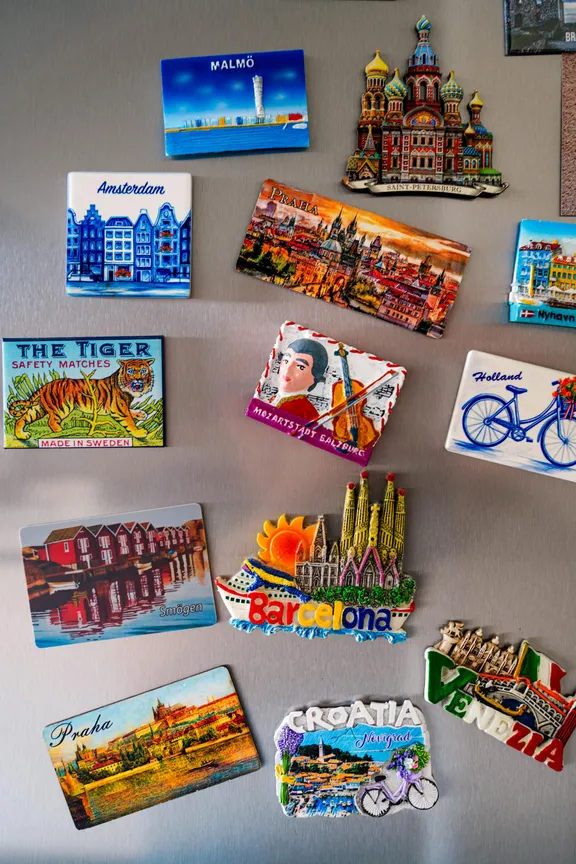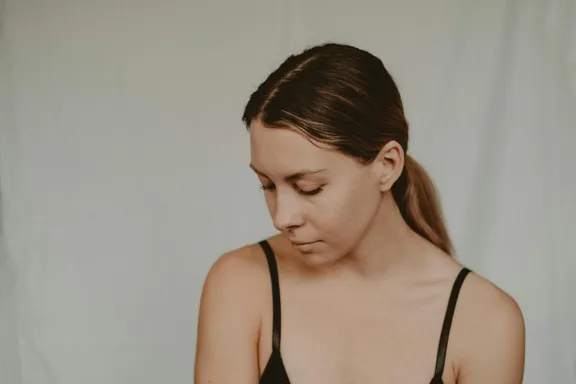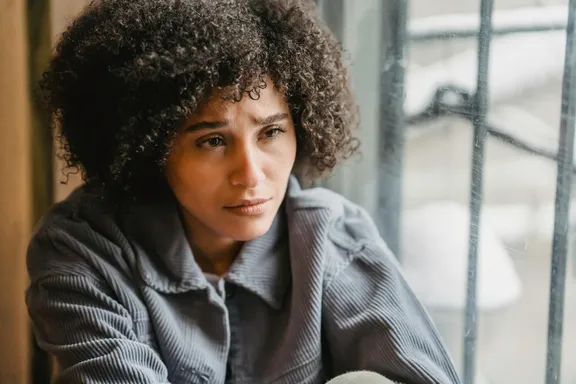After inheriting her grandfather’s house, Jennifer’s best friend becomes oddly fascinated by an old fridge covered in magnets. A shocking revelation comes to light when Jennifer finds out why her friend is so captivated by the fridge and threatens to tear their lifelong bond apart.
Hey everyone, I wanted to share a story that recently turned my world upside down. So, buckle up because this one’s a rollercoaster.
After my grandfather passed away, I inherited his old house. This place is a time capsule of my childhood, with forgotten treasures in every room.

Older objects on display in a house | Source: Pexels
I’ve been spending a lot of time here, reminiscing and trying to sort through his things. It’s been comforting and a bit overwhelming at the same time.
One sunny afternoon, my best friend Martha dropped by. We’ve known each other since we were kids; our families were neighbors, and we practically grew up together. Martha’s visits always brought a sense of normalcy and comfort.
“Hey, Jen,” Martha greeted as she walked into the kitchen, her eyes immediately landing on the refrigerator.

Close up of a woman’s face | Source: Pexels
Now, this wasn’t just any refrigerator. It was a shrine of sorts, covered with magnets from every place my grandfather had ever visited. Each one was a colorful memory of his adventures, a small piece of the world brought back to us.
She stood there for a moment, just staring at it. Her expression was intense, almost reverent, as she approached and gently traced her fingers over a magnet of the Brooklyn Bridge.
“He was quite the collector,” I remarked, joining her by the fridge.
Martha turned to me, her eyes shining with a mix of emotions I couldn’t quite place.

Novelty magnets on a fridge | Source: Pexels
“Jennifer, I’d give anything for this refrigerator with all the magnets. How much do you want for it?” She asked.
Her question caught me off guard. Martha had never been one to care much about material things, and certainly not a fridge.
“Why do you want it?” I asked, genuinely curious.
She took a deep breath, her voice softening. “As you know, I never met my real father. He left when I was just a baby. But he used to send me magnets and postcards from his travels.”

A thoughtful woman | Source: Pexels
“My mom kept them all in a box,” she continued. “I used to look at them and imagine what he was like, where he was. The magnets on your fridge are exactly like the ones he sent me. They’re from all the same places, too. It’s like someone put my magnets up here.”
Her words sent a shiver down my spine. Grandpa had always been a bit of a mystery, and there were some odd family stories about him. I glanced at Martha and a strange thought struck me.
Driven by a sudden need to understand, I hurried to the fridge and started examining the magnets more closely.

A frowning woman | Source: Pexels
My fingers brushed against a small, yellowing piece of paper wedged behind one of them. With trembling hands, I peeled it off and read the words scribbled in my grandfather’s handwriting: ‘To my dearest granddaughter and her best friend. You are sisters by heart, and bonded by blood, too.’
My heart pounded as I handed the note to Martha. She read it, her eyes widening with disbelief, tears welling up.
“Could it be?” she whispered. “Your grandfather… is my father?”
The room seemed to spin as we both tried to process this bombshell.

Two women share a glance | Source: Pexels
We spent the next few days in a whirlwind of emotions, struggling to piece together the past. We talked to relatives, and dug through old photographs and documents in Grandpa’s house, but found nothing to link him to Martha’s mom.
“There’s only one other thing we can try now,” I said to Martha after another fruitless search through Grandpa’s journals.
Martha sighed. “I know… I’ll have to ask Mom.”
I leaned over, took her hand, and gave it an encouraging squeeze. “I can come with you, if you’d like?”
Martha shook her head. “This is something I’ll need to do alone.”
The next day, Martha drove to the retirement home where her mom, Mrs. Anderson, had moved in the last couple years.
They sat down to drink tea together, and Martha cut straight to the point.
“Mom, do you remember Jennifer’s grandfather? Did you… ever have a romantic relationship with him?” she asked.
“Of course not! I saw him around the neighborhood when I was younger, but he was married and much older than me.” Her mother frowned. “Why would you ask me such a thing?”
Martha mentioned the magnets on my grandfather’s fridge, and her mom quickly dismissed her suspicions.
“You’re accusing me of having an affair with a married man because of some fridge magnets?” She let out a high-pitched laugh. “Oh, Martha, do you hear how ridiculous that sounds?”
“But they’re exactly the same, Mom!” Martha pulled out her phone. “I took a photo so I can show you. If you’ll get out the box of magnets my father sent—”
“I don’t have them anymore,” she cut in.
“What?” Martha froze. “But why? What happened to them?”
“They were part of the past.” Martha’s mom turned away to look out the window. “I threw them out with the trash.”
“How could you?” Martha rose as anger flooded through her. “That was the only connection I had to my father. You had no right to throw them out!”
Her mom pressed her lips into a thin line. “You’re a grown woman, Martha. Stop acting like a child. They’re just a bunch of meaningless trinkets.”
That could’ve been the end of our investigation if I hadn’t discovered a notebook hidden in Grandpa’s desk.
The notebook listed several payments made to L. Anderson. Which might’ve been a coincidence if it hadn’t also contained a faded photograph of Martha’s mom taken in her early twenties.
I showed it to Martha as soon as she got back to my place. Armed with this new piece of the puzzle, we decided to confront Martha’s mother again.
We sat in Martha’s living room, the air thick with tension. Mrs. Anderson looked more frail than I remembered, her hands trembling slightly as she poured tea.
“Mom, we know about you and Jennifer’s grandfather,” Martha said, showing her the notebook I’d found. “Please, just tell us the truth.”
Mrs. Anderson’s face went pale, and for a moment, she seemed to struggle with her emotions.
“You don’t understand,” she finally whispered. “I did it to protect you both. It would’ve ruined so many lives if the truth had come out.”
“But I asked you about him just the other day, and you lied,” Martha said.
“Because it was too painful,” Mrs. Anderson said, tears streaming down her face. “It’s best to leave the past behind.”
Martha and I sat there, stunned.
We had the answers we sought, but they came at a heavy cost. The days following the revelation were difficult. Martha and I struggled with feelings of betrayal and confusion. We argued, our emotions raw and unfiltered.
“I can’t believe she lied to me,” Martha said one evening. “How are we supposed to move on from this?”
“I don’t know,” I admitted, feeling just as lost. “But we have to try. We’re family, after all.”
Our relationship hit a breaking point when we had a massive argument about whether or not to forgive her mother.
It seemed like our lifelong bond would shatter under the weight of the truth, but everything changed when Mrs. Anderson had a serious health scare.
Rushing to the hospital, Martha and I found ourselves sitting in the waiting room, the reality of the situation hitting us hard.
“Martha, we can’t let this tear us apart,” I said, gripping her hand tightly. “Your mom needs us. We need each other.”
Tears streamed down her face as she nodded. “You’re right. Family is everything. We can’t change the past, but we can decide how it shapes our future.”
Mrs. Anderson recovered, and the scare served as a catalyst for healing. Martha and I sat down with her, talking through our pain and confusion. Slowly, we began to understand her perspective and the choices she made.
We kept the refrigerator as a symbol of our journey. It wasn’t just a piece of furniture anymore; it was a testament to our resilience, our love, and our unbreakable bond.
In the days that followed, Martha and I learned to appreciate the strength it took for her mom to protect us, even when it meant hiding painful truths.
One weekend, as we sat on the porch, reminiscing about the past and dreaming about the future, I realized how far we’d come. The pain and confusion had given way to acceptance and a deeper understanding of what it meant to be family.
“Here’s to us,” I said, raising my glass of iced tea.
Martha clinked her glass against mine, her eyes shining with warmth. “To family, and to the future.”